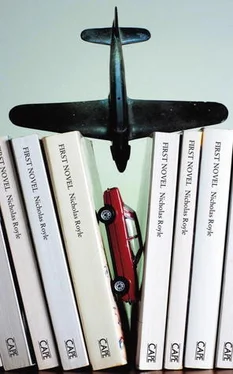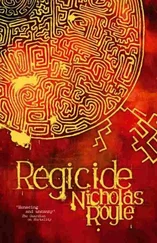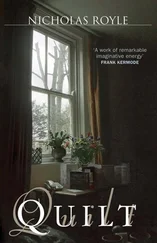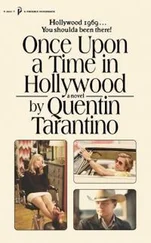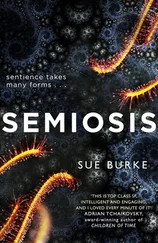Nicholas Royle - First Novel
Здесь есть возможность читать онлайн «Nicholas Royle - First Novel» весь текст электронной книги совершенно бесплатно (целиком полную версию без сокращений). В некоторых случаях можно слушать аудио, скачать через торрент в формате fb2 и присутствует краткое содержание. Год выпуска: 2013, Издательство: Vintage, Жанр: Современная проза, на английском языке. Описание произведения, (предисловие) а так же отзывы посетителей доступны на портале библиотеки ЛибКат.
- Название:First Novel
- Автор:
- Издательство:Vintage
- Жанр:
- Год:2013
- ISBN:нет данных
- Рейтинг книги:4 / 5. Голосов: 1
-
Избранное:Добавить в избранное
- Отзывы:
-
Ваша оценка:
- 80
- 1
- 2
- 3
- 4
- 5
First Novel: краткое содержание, описание и аннотация
Предлагаем к чтению аннотацию, описание, краткое содержание или предисловие (зависит от того, что написал сам автор книги «First Novel»). Если вы не нашли необходимую информацию о книге — напишите в комментариях, мы постараемся отыскать её.
is a darkly funny examination of the relative attractions of creative writing courses and suburban dogging sites, or it's a twisted campus novel and possible murder mystery that's not afraid to blend fact with fiction in its exploration of the nature of identity. Paul Kinder, a novelist with one forgotten book to his name, teaches creative writing in a university in the north-west of England. Either he's researching his second, breakthrough novel, or he's killing time having sex in cars. Either eternal life exists, or it doesn't. Either you'll laugh, or you'll cry. Either you'll get it, or you won't.
First Novel — читать онлайн бесплатно полную книгу (весь текст) целиком
Ниже представлен текст книги, разбитый по страницам. Система сохранения места последней прочитанной страницы, позволяет с удобством читать онлайн бесплатно книгу «First Novel», без необходимости каждый раз заново искать на чём Вы остановились. Поставьте закладку, и сможете в любой момент перейти на страницу, на которой закончили чтение.
Интервал:
Закладка:
I hear a different sound and look up. A beating of black wings. The cormorant has left its perch.
I bend down, lift the corner of gabardine and see more overcoat material underneath. I drop it and straighten up, prod with a toe, meeting resistance. I sit down again, my previous course of action interrupted. I look at the power lines, at the procession of pylons across the fields on the other side of the river. I watch a plane sideslip towards the airport. I listen to the bird singing from somewhere in the blackness of the tree, its song a repeated pattern of descending arpeggios.
I have never used this path before, but it can’t be long before it reaches the playing fields at the back of Parrs Wood High School and then, beyond the playing fields, Wilmslow Road. The Parrs Wood end of the same dismantled railway line that I can access from the humpback bridge near my house can be no more than a third of a mile away. Either Overcoat Man walked here, lay down and fell asleep, never to wake up, or was carried here and his body dumped in the undergrowth.
I find a recently fallen branch still festooned with foliage and lay it over the exposed area of gabardine before returning to the path and walking on, more quickly now, downstream. I turn right up a path perpendicular to the river that runs between the golf course and the school playing fields, and when I reach the top I cut across the Green Pastures housing estate and reach the end of the dismantled railway line. From here it’s a straight line; I can be home in ten minutes.
The dismantled railway line will soon be cleared so that the tram system can be extended along it. A line will run from Trafford Bar via Chorlton to East Didsbury. It will take years for the line to be constructed and for all that time, once they have been down here and cleared the way, the path will be fenced off to the public. I think about the crowd of young people I saw jostling Overcoat Man on the humpback bridge. I picture them carrying his body down this path in the same thick, knotted darkness through which I am currently advancing in the opposite direction. They could have done it the night after I discovered the body. I picture Overcoat Man making his own slow, painful way down here instead, either in daylight or at night. I had assumed he was dead when I found him lying in the nettle bed, but he may very well not have been. Maybe he was still alive even now, down by the river? Although I doubt it. I could have been wrong once, but not twice, and in this case I doubt that I was wrong at all.
When I get home, I stand at the window of my study, panting slightly from the exertion. I’m looking down at the humpback bridge over the dismantled railway line and the beginning of the path that leads down to the old trackbed from which I emerged only a couple of minutes ago. When my breath steams up the window and I can no longer see, I allow myself to fall forward until my forehead presses against the cool glass. The misty grey field in front of my eyes swims in and out of focus.
Only when I am too tired to remain upright do I go to bed.
In the morning I walk down the dismantled railway line as far as the bottom of Burnage Lane, where I stop and listen to the sound of my own breathing. I face a choice. Either I go left up to Didsbury Road and catch a bus to Stockport in order to pick up the car, or I go straight on through the little tunnel and then down to the river and Overcoat Man.
Either or.
Either I’ll walk up to Didsbury Road and sit and wait for a bus to Stockport and I’ll pick up the car and call Helen and meet her somewhere and either we’ll have sex again in the car or we won’t but either way I’ll never see her again after that. She won’t quit the course, but she’ll stop attending and it won’t be long before someone talks to the university and an investigation is carried out and I will be relieved of my position. It may be impossible to get rid of staff who underperform or who complain about this or that injustice while taking sick leave at the first sign of sniffles, but failure to disclose a previous identity and by extrapolation a criminal record will be reason enough. I’ll be out of a job. I’ll email Grace, but she won’t reply. I’ll give it a few days, I’ll give it a week, but she still won’t reply. I won’t know if I expect her to. I suppose I’m not surprised, I’ll think to myself.
One afternoon I’ll drive down Kenworthy Lane in Northenden. I’ll knock on Erica’s door, but she won’t answer. I’ll wait outside in the car. An hour will pass and finally she’ll walk down the street, coming home from work. I’ll open the car door. She won’t want to get in, but I’ll persuade her. I’ll tell her we’ll go for a drink, for a meal, whatever she wants. I’m depressed and confused, I’ll tell her, I don’t know who else to turn to. With obvious reluctance she’ll get in. I’ll start the engine and drive the car to the end of the road, where it turns into footpaths and cycle paths that go off into the woods and under the motorway. While I’m in the middle of executing a three-point turn I’ll look at the line of four concrete bollards that I’ll remember from the last time I saw Erica. I’ll remember specifically thinking about driving into them at speed. I’ll picture the moment of impact.
I’ll still be thinking about the bollards as I’m driving back down Kenworthy Lane towards the main road with Erica in the passenger seat. We’ll take a meandering route over to Stockport. There won’t be much conversation in the car. I will try, but Erica will resist. We’ll reach the roundabout over the river and I’ll take the exit for the Pyramid. I’ll pull in to the side of the road and Erica will stiffen in the seat alongside and I’ll try to reassure her that I don’t mean any harm. I’ll tell her, I just want to know about the Pyramid. I’ll ask her, How can I get inside? Can’t you get me inside? What’s that window there on the east wall, why is it different? See, one window on the east wall is different. It’s not a different size or anything, the windows are all the same size, but it’s a different colour. It’s kind of blank or opaque, while the others are semi-reflective. What’s special about it? I’ll ask her.
It’s the body door, she’ll say. I’ll say, What? What’s the body door? But she won’t say any more about it, just that it’s the body door. Perhaps it’s something she’s heard someone say. It’s not even an Egyptian pyramid, she’ll remark. It’s more Aztec or Babylonian. I’ll wonder if she’s right. I’ll look up at the steps near the summit. Two steps. The clear glass of the apex. An interior ladder goes right to the very top, but you’d climb it on your own. A pyramid is a house for one. Only one person can occupy the highest point at any one time. It’s narcissistic, solipsistic; it’s about power and the individual. I guess that’s why I’m drawn to it.
I’ll ask Erica if she can get me inside the building. This will be the last time I will ask her. Either she’ll say yes, in which case I will go in there and climb to the second floor and throw myself out of the body door. Or she’ll say no, and I’ll turn the car around and return to the roundabout. I’ll take Didsbury Road and drive in silence right through Heaton Mersey and East Didsbury and Didsbury Village with one hand on the wheel and the other resting on my leg, ready to change gear. When I look down, I’ll notice Erica’s leg. I’ll notice its constant tremor.
I’m not dangerous, I’ll tell her. She’ll look at me briefly, then back at the road ahead; she’ll be like a porcelain figure, fragile, brittle. I’ll turn left into Victoria Avenue and I’ll drive past the house where they filmed Cold Feet while I was in prison and then past the house of Elizabeth Baines and once I’m past the next junction the houses will get bigger and I’ll turn right, driving past even bigger houses belonging to doctors and lawyers and drug company executives until I turn left into Holme Road and right at the bottom into Dene Road West and I’ll skirt the speed bumps with the nearside wheels as I floor the accelerator. The stop sign will be obscured by the overgrown bush, the white line hidden by the last of the speed bumps. I’ll drive straight across Palatine Road. A car travelling from north to south will pass behind me so close it will feel as if it’s passed right through the back of the car. The woosh of air, the shriek of the engine. The scream of the horn, the explosion of brake lights — once we’ve missed each other and it’s too late for a warning, but not for a rebuke. I’ll turn to look at Erica as the car’s suspension reacts to the change in camber by bouncing into Mersey Road. She’ll be looking at me, eyes wide, mouth moving, but no sound coming out, or none that I’ll be able to hear. She’ll attack me, blows raining down on my arm as I continue to drive one-handed. I won’t feel a thing, but then I haven’t felt a thing for more than fifteen years. Under assault I’ll be unable to change gear and when the road bends to the right I’ll have to slow down and the engine will grumble. I won’t be able to hear it but I’ll feel the car begin to shiver and shake and I’ll have to brake and come to a halt and Erica will open her door and get out and run back down Mersey Road towards Palatine Road, where she will turn right and continue running and walking back to Northenden. I’ll take a deep breath and reach across to close her door, then I’ll turn the car around and drive to and fro across Palatine Road between Mersey Road and Dene Road West without stopping or even looking. I’ll do it five times each way, ten times. I’ll do it until I hit someone or until I’ve had enough, whichever comes sooner.
Читать дальшеИнтервал:
Закладка:
Похожие книги на «First Novel»
Представляем Вашему вниманию похожие книги на «First Novel» списком для выбора. Мы отобрали схожую по названию и смыслу литературу в надежде предоставить читателям больше вариантов отыскать новые, интересные, ещё непрочитанные произведения.
Обсуждение, отзывы о книге «First Novel» и просто собственные мнения читателей. Оставьте ваши комментарии, напишите, что Вы думаете о произведении, его смысле или главных героях. Укажите что конкретно понравилось, а что нет, и почему Вы так считаете.
